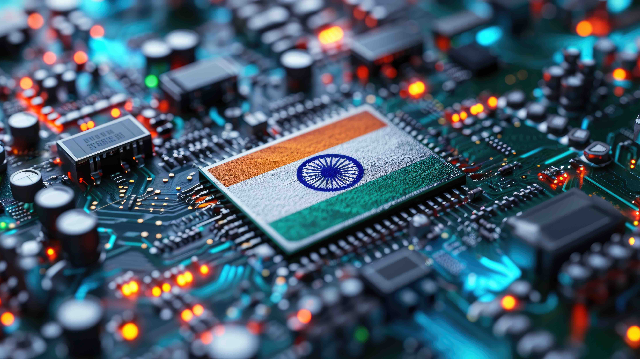Reflets Mag #153 | Debayan Chandra (MBA 17): “India Is Becoming an AI Super Power”
In Reflets Magazine #153, Debayan Chandra (MBA 17), Associate Director at TCG Digital, Ambassador of Institut français in India & President of ESSEC Alumni’s Kolkata Chapter, says India has what it takes to transition from a leader in IT to an AI super power. Here is a free online version of his interview… Subscribe to get the next issues (in French)!
Reflets Magazine: What is the state of AI’s development in India today?
Debayan Chandra: India ranks among the top 10 AI patent-producing countries and fourth-largest producer of AI-relevant scholarly papers thanks to government support, cutting-edge research in academic institutions, a thriving start up ecosystem, the low cost of technology development, and a large pool of talents.
RM: How is it impacting India’s IT sector?
D. Chandra: India’s IT sector is a major participant in the AI revolution. As a developer, it plays a key role in developing software applications that have embedded AI models. As a consumer, it is also one of the early adopters of AI based automations.
RM: Are there any barriers to the development of AI in India?
D. Chandra: India is a laggard when it comes to regulations on AI. The approach is more reactive, as a consequence of AI-induced incidents, addressing issues through amendments to specific sections of IT act or consumer protection related acts rather than adopting a proactive risk mitigation policy. Hence consortia are developing in sporadic manner with private players taking the lead and some industries advancing at a faster pace than others. That being said, before coming up with AI specific legislations, we should start with including AI requirements into the proposed Digital India Act (DIA) and Data Protection Act (DPDPA).
RM: What actions is India taking to make the most of AI opportunities?
D. Chandra: India has allocated over a billion US dollars to its National AI Mission, so as to build institutional capacity, support research and development, create high-performance computing infrastructure, and encourage private investment. However, synergies with related missions such as the National Supercomputing Mission, the National Semiconductor Mission and the National Quantum Mission are yet to be established. Similarly, much work is needed around marrying AI skills development goals with the Skills India initiative and the National Education Policy. Last but not least, we also need more multi-stakeholders agreements, public-private partnerships, and commercial tie-ups, such as the AI4Bharat initiative, the Bhashini project, and the Global Partnership on Artificial Intelligence (GPAI).
RM: What are the prospects for AI in India in the near future?
D. Chandra: India’s ambition is to start by leveraging existing global capabilities while building an indigenous one, and ultimately transitioning to become a fully self-reliant AI super power. This strategy differs from China’s tightly controlled government-led model and the USA’s laissez-faire venture capital-funded hyper-growth model. It will require establishing dedicated standards, lowering barriers of access and entry for AI innovation, streamlining IP application and processes, supporting open source communities, improving data collection, pre-processing and accessibility, ensuring interoperability among datasets, scaling supercomputing infrastructures, and manufacturing highly advanced GPU chipsets.
Interview by Louis Armengaud Wurmser (E10), Content Manager at ESSEC Alumni
From Reflets ESSEC Magazine #153. Read a preview. Subscribe to get next issues (in French).
Image : © AdobeStock

Commentaires0
Vous n'avez pas les droits pour lire ou ajouter un commentaire.
Articles suggérés

